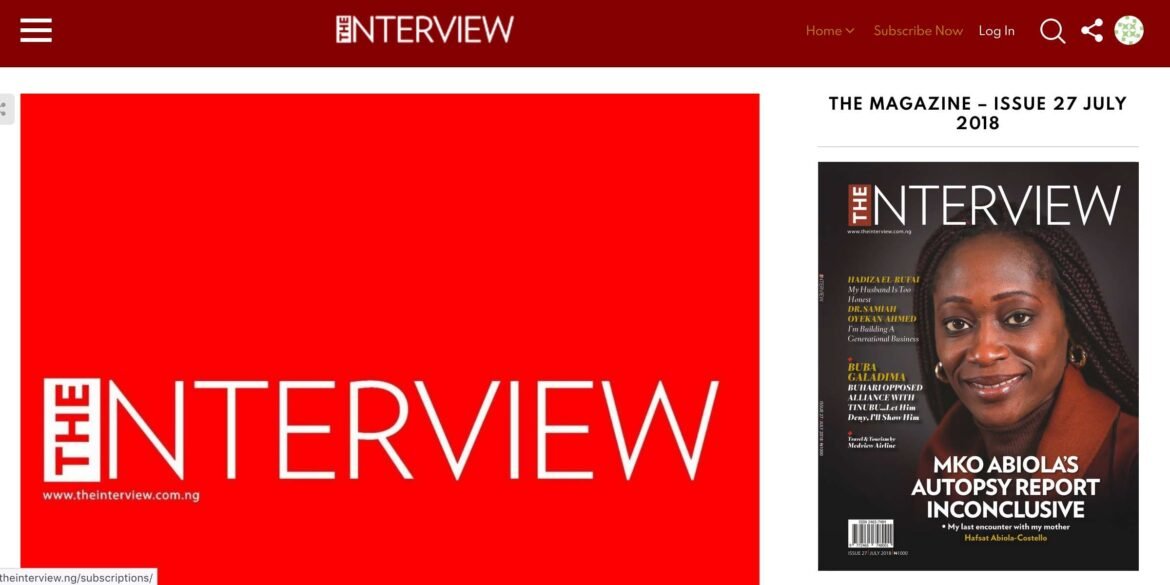By Harrison Roberts
The world will eat software. In 2017, this is an indisputable fact, dependence on social media and the growth of fledgling artificial intelligence are great case studies. In a decade, modern life and technology will be indistinguishable; biotechnology, fully-fledged artificial intelligence and neural networks will form the backbones of not just humans and how they live, but humanity itself.
As a people, we are now at the precipice of a New Age and it is important that the journey is chronicled, entirely because it has been fraught with debilitating issues and great opportunities that have shaped and continue to shape this enthralling technological revolution unfurled and how it became the story of a people.
Many moons from now, future generations will know we came, because of the stories we preserve and chronicle of these times. They will know how we disrupted traditional ways of thinking, how we fought against prejudices and obstacles to play our role in this revolution, how we ushered our continent out of darkness and into the future, how we dared to dream; by leveraging on the limitless power of technology, how we have used the amplified and irrepressible voices of the oppressed over the internet and online platforms to topple autocratic governments and a shine a light on gross injustices.
But the story of how our world, the African continent in particular, has come to rely so heavily on technology is not complete without context. Once upon a time, the white man sought to save the Dark Continent from itself and so the now infamous Scramble for Africa and consequent colonization was birthed. The white man could not comprehend that his darker skinned contemporary could or should deserve a right to self-determination, a right to steer his destiny as he saw fit. Fast forward over half a century later and the West has evolved beyond the separatist underpinnings of colonization towards a ‘globalised’ worldview. The concurrent rise of globalization and pervasiveness of technology are not coincidental. Technology is built, wholly, for convergence and thrives on scale, preferably across a wide and diverse user base.
For convergence and scale to operate effectively, it was important that the formerly Dark Continent was accessible to a new class of products and the mostly Western companies that built them. Where the white man was supposed to shine a light, he now deferred to the embodiment of his so-called superior knowledge, applied sciences, to save the Africa from itself.
Facebook would bring billions together and blur borders that helped colonialism thrive, Microsoft’s productivity suite, Office, would help millions of businesses and entrepreneurs do more and compete on a global level, Google’s open source mobile operating system Android would help to aggressively lower the costs of smartphones etc. and unlock new classes of service based businesses.
The thread that cuts across most of the technology that the West has exported here is that, at face value, they have drastically helped to improve standard of living. For the first time in the history of our world, we were treated as equals to other citizens of the world.
Technology as a social leveller. You could now access the same information as anyone else, regardless of race of geographical location over the web and with this information we could amass power like never before. We would no longer be subservient to the West. Or would we?
Throughout colonialism, the West plundered natural resources of African states and the capital flight accrued was used to bolster Western economies and an Industrial Revolution that largely evaded colonies then and thereafter. Post-colonialism, the West continued to severely stunt any chance of resource mobilization for development in Africa by African states by enforcing policies such as the Structural Adjustment Programs (SAP) included in the 1981 Berg Report which was a prerequisite to any financial aid afforded to African governments.
SAP, in theory, was supposed to drive foreign direct investments and facilitate the import and export of goods across the continent. In a sense, these policies were a first step towards integrating African economies into a global economy.
In practice, foreign direct investment was limited to just resource extraction; again, the West had come to take. The unchecked and morally reprehensible exportation of these resources would further widen the gap between the colonials and the former colonies, since the sale and use of refined resources would benefit foreign economies and propel technology advancements in the West while African states floundered hopelessly, mired in widening trade deficits driven by incapability to export goods and services beyond mineral resources at a similar pace as imports. In 2008, French President Jacques Chirac said, “Without Africa, France will slide down into the rank of a third [world] power…”
Also, Western companies, not only states have benefitted from exploiting African resources. Cecil Rhodes’ De Beers, a diamond company in South Africa; and the 1996 Pfizer drug trials in Kano are excellent case studies on how Western companies wilfully pillage our lands and commit unconscionable atrocities while doing so.
Tom Burgis, author of The Looting Machine, acknowledges that, “The multinational companies hold enormous economic and political power in post-independence African countries. In this way, there is a pretty straight line from colonial exploitation to modern exploitation.”
A race oppressed for far too long has naively gobbled up the West’s export with very little thought about the real cost of the West and increasingly East’s offerings. Technology may underpin a globalised world, but it has done very little to reverse the irreparable damage of the West’s separatist policies throughout colonization.
Arbitrarily imposed physical borders still exist and worse still, thrive. Home-grown technology never scales African borders or converge Africans. Where Whatsapp reaches the furthest corners of the continent, M-Pesa remains a mostly East African solution while hundreds of millions of Africans outside the region remain unbanked.
In fact, M-Pesa has found it more reasonable to expand into Eastern Europe than nearby African countries. Andela, an originally Nigerian business, now backed by Facebook exists to export African talent to Western organizations. As African technology start-ups look to ape their Silicon Valley counterparts, they look Westward for conceptualization, funding and expansion, never inwards.
While Western technology consumes the continent unchecked, African technology basks in the West’s adulation on Techcrunch, with very little chance of acceptance by the same user base that much larger Western companies control. The West chooses its own, always.
The West has only ever sought a parasitic relationship with the continent – to benefit, at any cost. They give accessibility through affordable mobile devices on one hand, and dump their harmful electronic waste in your landfills and waters.
But we only have ourselves to blame, again. It is time we looked inwards to solve our problems first and foremost. African solutions to uniquely African problems are the story of how a Dark Continent found light within itself. How we cured diseases with scientifically refined versions of our traditional herbs, how we created self-driving cars to manoeuvre untarred roads, crowdsourced data to oust corrupt governments etc.
Till this day it remains in the benefit of all to keep Africa divided, fractured. As a union, working hand in hand, we are a frightening proposition. While the world eats software, we must look to create ours.
This is our story.








